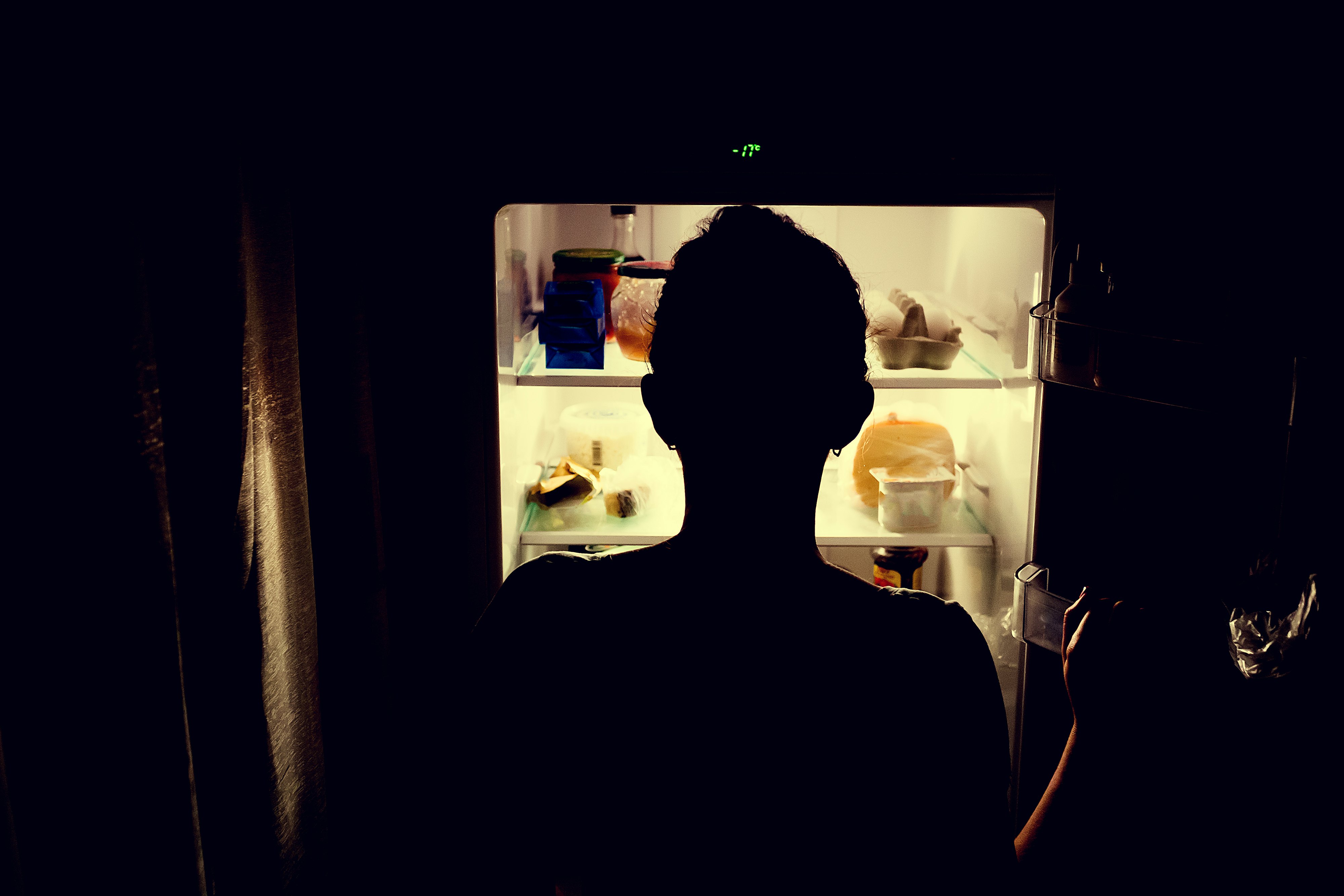
When breastfeeding, it is quite common to feel like you could scarf down the entire world in one sitting, and then come back for the moon a few minutes later. Feeding a little one with food made from your own body... well, it makes you hungry. And for some moms, their most intense hunger may come in the middle of the night. Why is this exactly? And is it OK for breastfeeding moms to chow down past sundown?
I remember when my own kid was born and my female friends kept sending me food. Initially I was like, “What’s with all the cheeses and chocolate-covered strawberries and custard-filled cakes, guys?” And then, about a week into nursing, as I was tearing off chunks of cake with my bare hands, jamming it into my mouth as quickly as I could... I understood. Fortunately, as time went on, things kind of evened out, and I no longer wanted to pull the doors off the cabinets and eat their entire contents. But those first few weeks, I was positively ravenous.
Eating More While Breastfeeding
Crystal Karges is an IBCLC with a master’s degree in nutritional science. She’s also the mother of five, and she says that lactation is extremely “energy expensive” on the body. “Meaning, it requires a high amount of energy in order to make and sustain a milk supply. Lactation plus being postpartum often creates energy demands on the body that are higher than that during pregnancy. Because of this, many breastfeeding moms may feel increased hunger, hungry more frequently, or more intense hunger. This is simply the body's way of attempting to meet the nutrient demands needed to sustain lactation.”
But what about moms who find their stomachs start to growl in the wee hours? Is it OK to hunker down with a ham sandwich at 2 a.m.?
“Many babies are nursing around the clock, including at night time,” Karges says. “With increased feedings during the day and night, moms may also experience hunger at night when feeding their babies. This can also be contributed to the combination of hormonal fluctuations and sleep deprivation, which, in addition to higher nutrient needs, can intensify hunger cues during the night.”
The good news? Midnight snacking is perfectly fine. “It's important to remember that hunger is simply our bodies' way of communicating a need that we have. It's not something we have to ignore or try to suppress,” Karges explains. “And you don't need to feel guilty for feeding your body, no matter what time of day it is. The better you're able to respond to your hunger, the easier it will be to care for yourself and nourish your body appropriately. Getting enough to eat and responding to your hunger cues, even if they strike during the middle of a nighttime feeding session with your baby, is also important for sustaining your milk supply while breastfeeding.”
Healthy Breastfeeding Snack Options
You may be asking yourself: But what should I be eating? Can I scarf this cold pizza and this bag of barbecue Fritos? Well, yes, you can, but there are perhaps some better, healthier options out there. Betty Greenman is an IBCLC with Breastfeeding with Love, and she has many snacking suggestions for breastfeeding moms that are good for either day or night: “Oatmeal is one of the best foods for boosting your milk supply. It contains manganese, phosphorus, copper, iron, selenium, magnesium, and zinc. A handful of almonds is also good snack. Almonds provide many important nutrients, including antioxidants, fiber and healthy fats, proteins, magnesium and Vitamin E. It also lowers blood sugar levels, reduces blood pressure, and lowers cholesterol levels. Yogurt is rich in micronutrients and macronutrients, such as carbohydrates, protein and fats.”
She also suggests things like hard-boiled eggs, raw vegetables dipped in hummus, and multigrain bars. “Keep the bars in a basket nearby, on your coffee table or night stand, so you can grab and go!” No matter what time of day it is, take care of that need. Just like you feed your baby whenever they’re hungry, feed yourself, too.

0 comments:
Post a Comment